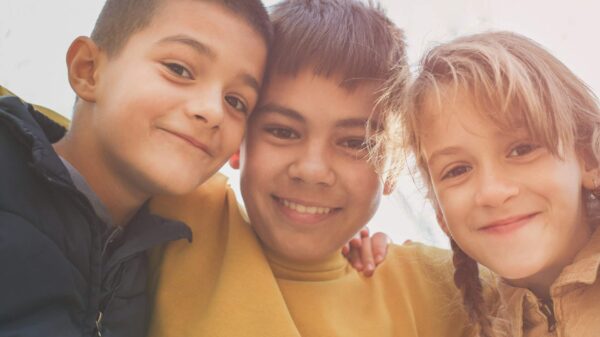Certain subjects are often deemed off-limits in polite conversation—sex, politics, religion. However, after over a decade navigating the realm of parenting, I’ve discovered other contentious issues that spark intense discussions, one of which is spanking. Recently, Jon, a thoughtful father and parenting coach who goes by @wholeparent on TikTok, presented a provocative viewpoint that’s making waves.
He remarked, “The only reason it’s not illegal in the United States to hit kids but it is illegal to hit adults is because we view children as property.” This assertion is certainly stirring. Yet, when you examine its historical roots, it becomes challenging to dispute.
Jon refers to the Doctrine of Coverture, a remnant of 16th and 17th-century English Common Law that deemed a wife as her husband’s property, thereby categorizing their children as possessions too. At that time, women and children lacked independent legal identities—they couldn’t vote or independently possess property, epitomizing a profoundly unjust system. While wives and children—primarily white—did not endure the same legal status as enslaved people, their rights were nonetheless significantly undermined.
Jon’s observation resonates: “Thankfully, we have made strides in gender equality in the past century. Women today are legally supposed to be treated the same way as men. But we haven’t seen the same progress for children.” The implication in his use of “supposed” underscores the ongoing hurdles we face.
In the U.S., the definition of “child discipline” varies from one state to another. Nevertheless, corporal punishment is permissible in all 50 states and shockingly, still allowed in schools in 17 states. This permissibility arises from a different aspect of English Common Law known as *in loco parentis*, a term I first encountered in the musical *Hamilton*.
Thus, in many states, you can legally strike your 17-year-old, but once midnight arrives on their 18th birthday, you risk facing assault charges. Isn’t that perplexing?
What’s particularly troubling is that the U.S. is an outlier among developed nations regarding this issue. For instance, the **United Nations Convention on the Rights of the Child** was established in 1990 to encourage nations to adopt discipline methods that honor children’s human dignity, a convention ratified by every country—except the United States. By 2025, 74 nations, primarily in Europe and Latin America, will have enacted complete bans on physical punishment in all scenarios. It’s worth noting that former British colonies, rooted in English Common Law, are generally less inclined to implement such bans.
Jon highlights that there are far more effective and empathetic approaches to guiding children than resorting to physical punishment. Research indicates that children subjected to physical discipline are not only more prone to future violence but also face heightened risks of anxiety, depression, and antisocial behavior. This assertion is backed by esteemed organizations like the American Academy of Pediatrics, which reinforces the detrimental effects of any form of hitting.
In summary, Jon encourages us to reassess our justifications for striking children: “Please, for the love of God, stop trying to justify hitting your kids.” His plea is powerful—it’s time for us to engage in compassionate dialogue about parenting, placing our children’s mental and emotional health above outdated disciplinary views. Parenting presents its own set of challenges; rather than turning to methods that perpetuate cycles of violence, let’s pursue healthier strategies that foster understanding and respect. Our children deserve nothing less.
Image Source: Unsplash
























